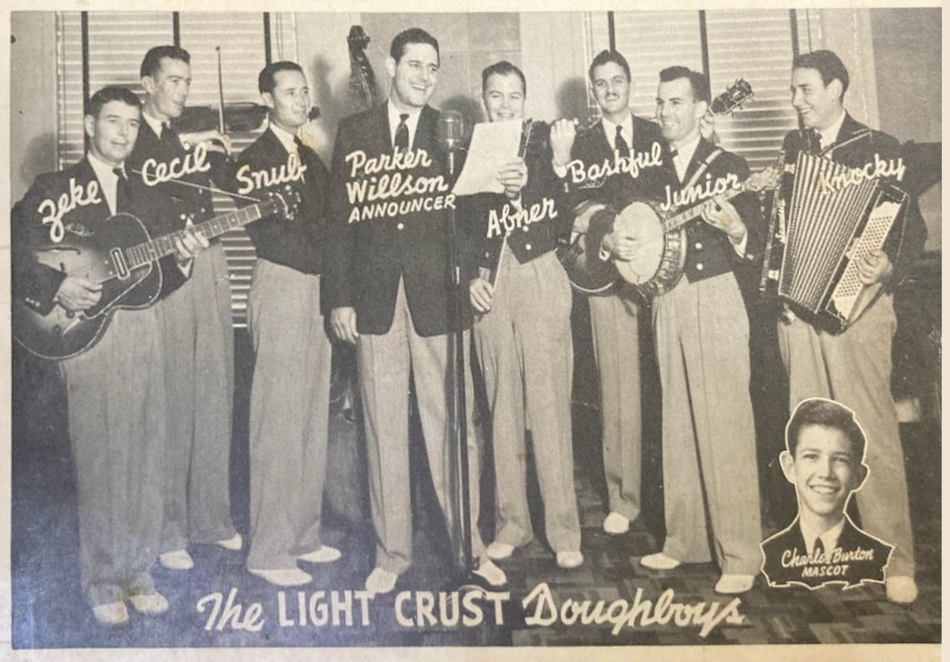The Field
 Fridel family members working their potato field in Kurten, Texas (date unknown) 1
Fridel family members working their potato field in Kurten, Texas (date unknown) 1
In the fields my aunts wore long sleeves, bonnets, gloves, so that their skin wouldn’t tan, marking them as laborers when they went into town— but the heat outdoors in Texas, even in spring and fall, could be unbearable.
Aunt Jody was the beauty of the sisters, she was a musician too, she played what they called the “Hawaiian guitar” and the harmonica. She had a love affair with one of the Light Crust Doughboys, a famous country-and-western band that played on the radio. He was a protestant— and they were forbidden to marry. One day when the family was preparing to go back out into the field to work, Jody locked herself in the house, weeping. When they tried to get her out, she attacked one of them with a screwdriver. After that the family paid to have Jodi taken to Galveston for electro-shock treatments. She didn’t speak for seven years after that. She was never the same. When I knew her she was a shattered and nervous old woman who kept stray cats in cages because she was afraid they’d be captured and vivisected for medical science.
“I don’t believe in God,” she said, “Because of the all fire ants and the stickerburrs.”
-
The family work system practiced by the Germans and later the Czechs in Texas may have eschewed slavery, but it depended on a patriarchal system of unpaid toil by women and children. “The ‘freedom’ of the frontiersman, in other words, depended less on having a gate of escape across an endless frontier than on being able to control the labor of his family” (Grandin 2019, p. 354) ↩
Genealogical Information
- Grandin, Greg. 2019. The End of the Myth: From the Frontier to the Border Wall in the Mind of America. New York: Metropolitan Books, Henry Holt and Company.
